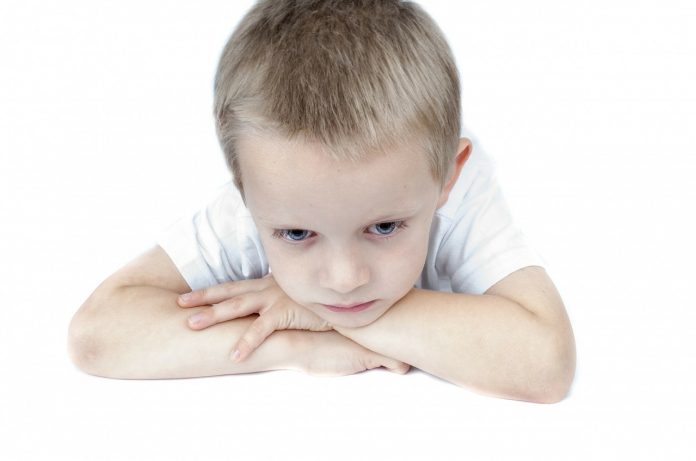Probably one of the greatest challenges of parenthood is introducing your child to death, and the concept that one day everyone who makes up their world will die, including them. It’s a harsh truth and inevitably you will be faced with that first day when a cherished loved one passes away and you need to explain what has happened to your child.
With your emotions, sleep patterns and thinking likely nowhere near their best, you will be asked to help make a difficult time as easy as possible. Here’s how you help your child understand and cope with death.
Don’t shield them from it

Right from the very beginning, your kids need to know what has happened. Try to tell them as soon after the news comes in that someone has died. This way your child is much more likely to understand your own grieving process. Children will quickly pick up that something is wrong, and being open and emotional around them can help your child learn how to mourn. Tell them somewhere they feel safe, and in your normal voice – whispering can frighten them.
When you talk to them don’t use euphemisms for death. Children think in black and white and while it’s tempting to try soften the blow, by saying that grandma has “crossed over” or “passed away”, most young children will not necessarily know what these words mean and it may take them longer to actually come to terms with what has happened. Don’t be afraid to explain to them how you feel and that it’s okay for them to feel sad. They need to know what they are feeling is normal.
Writing about a loss, the things left unsaid, and creating a photo album, have all been shown to help with the grieving process, and so it is with children too. Actively sit with them to have discussions about the loved one, what they remember, what they will miss, or what stands out for them. Encourage them to draw pictures celebrating the person’s life. These things will all help them to clarify their feelings and come to terms with the fact that they won’t see their loved one anymore.
In this vein it’s important to also include the children in the death rituals. They don’t know what funerals are about, or how to act at them and you will need to show them. Let them pick out an item of clothing for granny to be buried in, write a short speech for the funeral or choose a song for the funeral.
All this said, don’t flood them with info. Drip feed them these conversations over time, responding to questions they may have honestly without going into overly elaborate detail is an easy way to ease their minds without confusing them.
Let them grieve in their own way

It’s very difficult to know how a child will react to death. Some will cry, others won’t react at all. Whatever they do, let them go through it. A child who doesn’t respond doesn’t necessarily not understand what has happened. Give them a chance to go away, deal with the shock and speak to them a little later, if that’s what they want.
Children may experience nightmares, stop eating, or complain of stomach aches or headaches. Sometimes they can revert to an earlier stage of development. Another surprising reaction that parents may not expect is for their children to isolate themselves, or claim they are lonely. All of this is natural.
No matter how they react remember, they are still human and need to be comforted just like you do. Don’t be afraid to offer loads of extra hugs, and love at this time, even if they claim they are fine.
There may also need to be allowances made initially for their grieving. Accept that things won’t be normal for a few weeks. Chat to their school, sports clubs, hobby associations or religious communities to let them know what has happened. While ideally, you will want to keep daily rituals as close to what it was like before the death, you need to also be prepared to take a day off school with them to go for lunch and talk if it all becomes too much.
This is not something that can be dealt with until the funeral and then forgotten. Make it clear to your child that you will always be available for chats and to answer questions if that’s what they want. Check-in with them occasionally over the next few weeks and even months. It’s a process and they will let you know when they have finally understood it all.
Do not however allow them to dwell on death. Answer their questions, chat, discuss and then find something to distract them. Play, paint, cook something or go to a park. It’s good to remember their lives can still be full of fun.
Watch for signs they aren’t handling it

Children very often blame themselves for events like this. It’s extremely important that if they bring it up, you explain in no uncertain terms that the death was not their fault, and there was nothing they could do to prevent it.
Just like with adults sometimes death can be too much for a child to handle. Over the months that follow be extra vigilant for signs that your child may not be coping as well as they claim. If they begin to be disruptive in school, let their marks slip or behave differently, become introverted and quiet when they were extroverted and excitable before, for instance, they may be suffering from depression, or be unable to deal with their emotions.
In this instance don’t be afraid to reach out for external help from a school guidance counsellor, psychologist or another close family member.
Honour your own grief

Understand that you too are likely experiencing grief. You need to look after yourself if you want to be able to look after your children. Eat well, exercise, share your feelings and don’t be afraid to show your emotions. Ultimately it is the way you react that will shape the way they handle death in the years to come, make it as healthy as possible.


